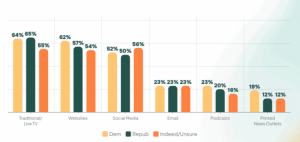
China’s wealth continues to increase state-funded projects like electric-vehicle charging stations and computer and smartphone operating systems, as part of the country’s strategic government initiatives to become more independent. Not everyone wants to talk about the OS that China’s government expects to release later this year and how it could create a barrier of entry to online businesses that affect search marketing, but some of those who understand its influence shared their thoughts with MediaPost.
Unlike Chrome, Firefox and Internet Explorer browsers, an operating system determines more of the structure that runs on it.
Francis Bassolino, managing partner at analyst firm Alaris, has lived in Shanghai City, China for years. “If you had to use a specific browser to do banking in China or some type of ecommerce transactions that would be a definite barrier to entry for many companies,” he said. “It would be devastating to a lot of international companies, but almost impossible to do because of community backlash. They will likely use the operating system mostly for their own government agencies, military and, perhaps banking, but highly unlikely.”
The Los Angeles Times reminds us that Google services such as Gmail and Maps were stifled this year by the country’s Internet censorship and surveillance program, while Facebook and Twitter remain blocked on the mainland. Last month state-run TV aired a report on the iPhone’s tracking feature that suggested the devices could be used to expose state secrets.
It’s easy to see how a NSA security threat in the U.S. would prompt China’s government to create its own proprietary systems, Bassolino said. Most operating systems pose a security threat in one way or another, but it’s almost inconceivable that a government-run operating system would completely displace those being used today from Google and Microsoft because the technology being created in the U.S. remains so much more advanced, he said. “It’s more of a wish to have their own OS because they feel it’s a threat not to build it,” he said. “It’s a dream to create the system, but the probability of it actually getting implemented beyond government and military is slim to none.”
Something similar occurred a few years ago when the Chinese government talked about creating their own switching technology for cellular phone and officials realized the project couldn’t keep up with the technology being developed internationally, Bassolino explains.
Reports from Xinhua, China’s government-owned news agency, say that the desktop version will become available in October, followed by the smartphone version shortly after.
Roger Barnette, IgnitionOne president, said he would not be surprised to learn about a Chinese-backed search engine since Google’s issues in China are well documented and now that Microsoft is under an anti-trust investigation. “The opportunity for China to monetize OS and search revenue is an opportunity that will be hard for them to ignore, as well as the ability to control search results for Chinese citizens,” he said. “I see this as a move intended for all Chinese users, not just government agencies.”
Still, Barnette admits it would become very difficult for a Chinese government agency to successfully create competitive products to rival Apple, Microsoft, and Google.
“If we’re talking about leveraging an operating system to defend your important infrastructure, then I can see it being restricted to government use,” said Jeff MacGurn, SVP at search marketing company Covario. “In this case, you wouldn’t want it to gain widespread adoption because that opens it up to scrutiny and ultimately exploitation as it has more eyes evaluating it.”
If China builds this OS for the purposes of gaining control of a bigger portion of the digital infrastructure, then MacGurn believes the government will encourage more widespread adoption, but he views it as a double-edged sword. “Operating systems like Windows, Linux, and Android have been around for a while and have the advantage of years of work covering up holes and exploits, and they still fight to cover up those holes and exploits,” he said. “Any new OS entrant will likely have to spend a lot of time making the same mistakes everyone else made long ago.”
Steve Beatty, senior SEO director at Covario, believes it will further limit Google’s and Bing’s influence in the Chinese market. “Potentially, this could lead into a huge battle between the No. 1 Chinese search engine, Baidu, and the No. 2 Chinese search engine, 360 Search, as well as Alibaba with its deep pockets and browser OS rights, even without a browser,” he said. “The winner could become the dominant search engine for China, the world’s largest emerging market.”
(267)






